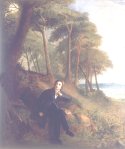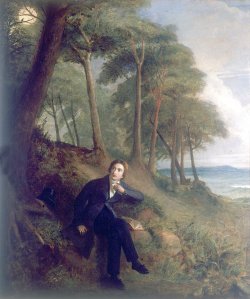Charles Bukowski poems have straight forward language, each poem a short story of what is, or could be, a real event. Here’s my go at writing a Bukowski styled poem about beer. Bukowski loved beer.

Beer with the Boys
Alongside the roadside on the street's dirt shoulder is a bar, a drinks shop for transient workers who may support a family live in a tent live in a shanty living in this historically caste oriented country where they’re at the bottom of the totem pole. No they're lower they're the dirt the totem pole stands on. “Stop,” I called to the driver. “I’m going to get a drink. You want one?” I ask my middle class colleague who has an expression of concern bordering on fear. He’s not getting out of the taxis. But he does. It's just men walking home after work Sure they're low on the economic scale and they don't look like me but I'm like them, I had darkened skin working in the sun in the farm fields in the dirt where my father was born in a farmhouse down a Canadian country dirt road. Me and my friends all worked farm labor jobs. Standing on the roadside I say, “I got this” and wonder if they speak English. I cautiously step up to the iron wire store front window point and say, “Two beers, please.” “Yes,” he answers getting 2 bottles out of an ice cube box and pours them into plastic cups his English is fine. I'm having a drink with my kinda people like having a cold one after a hot summer day with my farm field crew. “Quite the pile of cups on the ground,”I say, but my California molded mind is thinking, litter. My colleague says, “Someone will pick them up and sell them.” I tip my cup to get the last drop and throw into the pile not littering feeling good helping someone of the earth who supports the totem pole of commerce.






